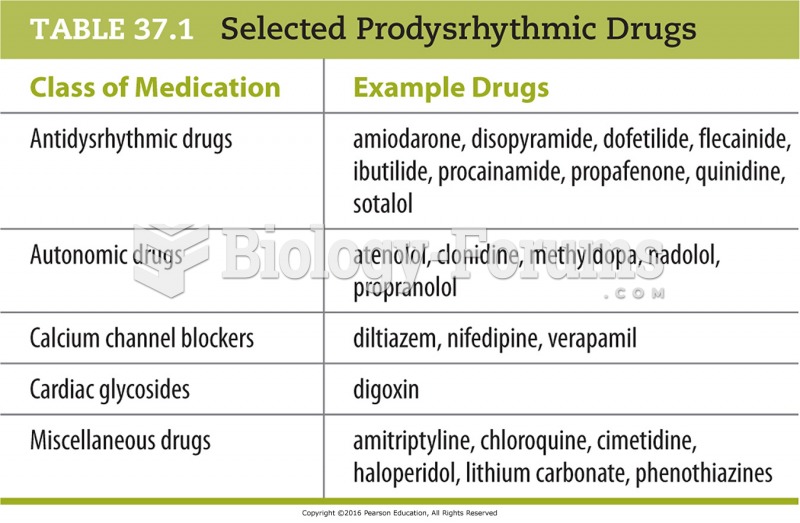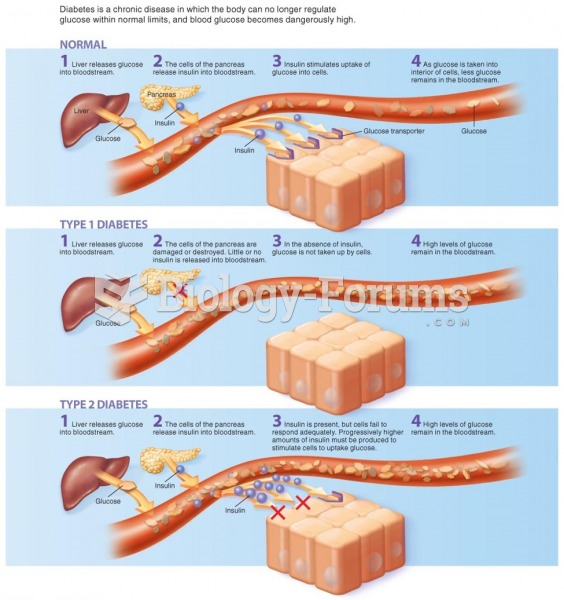Answer to Question 1
Correct Answer: 1,5
Rationale 1: ACE inhibitors protect the kidneys in clients with diabetes. JNC VI recommends that clients with other compelling factors be given an antihypertensive that also treats the other factors.
Rationale 2: Beta blockers treat hypertension but do not help diabetes and can mask signs of hypoglycemia.
Rationale 3: Thiazide diuretics treat hypertension, but do not help diabetes.
Rationale 4: Calcium channel blockers treat hypertension, but do not help diabetes.
Rationale 5: ARBs protect the kidneys in clients with diabetes. JNC VI recommends that clients with other compelling factors be given an antihypertensive that also treats the other factors.
Global Rationale: ACE inhibitors and ARBs protect the kidneys in clients with diabetes. JNC VI recommends that clients with other compelling factors be given an antihypertensive that also treats the other factors. Beta blockers treat hypertension but do not help diabetes and can mask signs of hypoglycemia. Thiazide diuretics and calcium channel blockers treat hypertension, but do not help diabetes.
Answer to Question 2
Correct Answer: 1,2,3
Rationale 1: Diuretics are considered a primary antihypertensive agent and should be discussed with this client.
Rationale 2: ARBs are considered a primary antihypertensive agent and should be discussed with this client.
Rationale 3: Beta-adrenergic antagonists are considered a primary antihypertensive agent and should be discussed with this client.
Rationale 4: Direct-acting vasodilators are considered an alternative antihypertensive medication and are prescribed only when first-line agents do not produce a satisfactory response.
Rationale 5: Peripheral adrenergic antagonists are considered an alternative antihypertensive medication and are prescribed only when first-line agents do not produce a satisfactory response.
Global Rationale: Diuretics, ARBs, and beta-adrenergic antagonists are considered primary antihypertensive agents and should be discussed with this client. Direct-acting vasodilators and peripheral adrenergic antagonists are considered an alternative antihypertensive medication and are prescribed only when first-line agents do not produce a satisfactory response.







